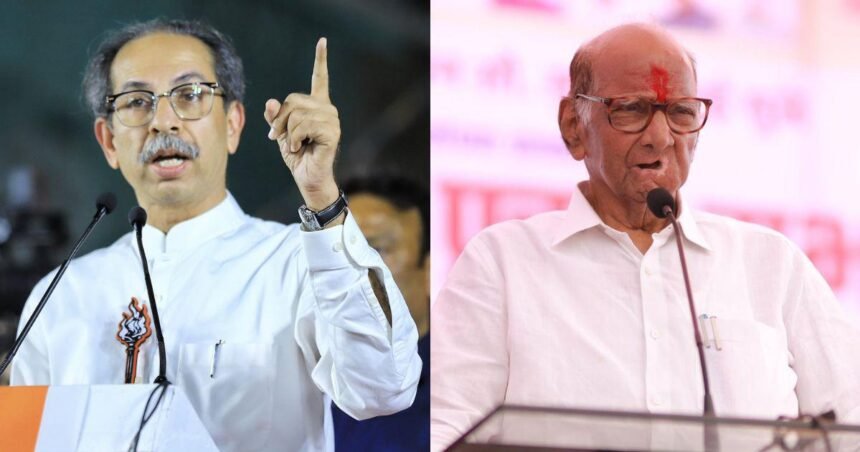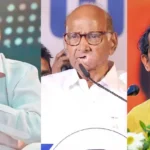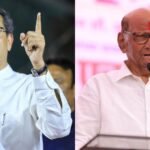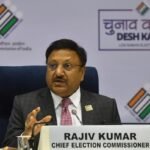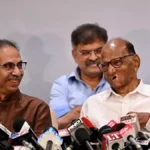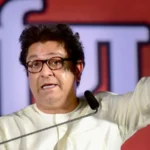The public’s dissatisfaction with the continuous political unrest was reflected in the Maharashtra Lok Sabha elections of 2024, which marked a dramatic shift in the state’s political climate. This election served as the first significant test since the turmoil that started in 2019 when the Shiv Sena, led by Uddhav Thackeray, split from the BJP to create the Maha Vikas Aghadi (MVA), a coalition government with the Congress and the Nationalist Congress Party (NCP).
Political Structure and Election Outcomes
Maharashtra’s political landscape has been marked by abrupt changes, especially after the coup in 2022 spearheaded by Eknath Shinde, who sided with the BJP, and Ajit Pawar’s subsequent defection from the NCP. The result of these developments was a division inside the Shiv Sena and NCP, which further complicated the electoral situation. But the response of voters in the 2024 elections points to a definite rejection of the “khichdi politics” that have bedevilled the state, preferring a reunion with the MVA alliance.
The MVA won thirty of the forty-eight Lok Sabha seats in this election. The Congress won thirteen, the Shiv Sena (the faction led by Uddhav Balasaheb Thackeray) won nine, and the NCP (the faction led by Sharad Pawar) won eight. However, just 17 seats were gained by the ruling alliance of Shinde’s Shiv Sena, Ajit Pawar’s NCP faction, and the BJP—a sharp decline from the 23 seats the BJP won in 2019. With just 9 seats, the BJP’s power has significantly decreased, compared to the 7 seats obtained by Shinde’s faction and the 1 seat won by Ajit Pawar’s side[1].
Principal Matters and Voter Attitude
Hindutva, which the BJP sought to use against Uddhav Thackeray, and the Ram Mandir were two of the major topics that shaped the election. But as voters rejected the BJP’s narrative, it became clear that they were tired of sectarian politics. This pushback was probably caused by the spike in hate speech instances and communal rioting that occurred during Shinde’s leadership, which suggests that voters’ attitudes are shifting in favor of stability and harmony within the community[1].
The consolidation of Muslim and Dalit support for the MVA, which lessened the influence of Prakash Ambedkar’s Vanchit Bahujan Aghadi (VBA), was another important reason. The VBA’s vote share decreased dramatically in this election cycle, going from 7.65% in 2019 to just 2.78% in 2024[1].
The Congress’s Comeback
It is significant that the Congress party has made a comeback in Maharashtra, capturing 13 seats as opposed to just 2 in 2014 and 1 in 2019. This is the party’s best result in ten years. This comeback shows that the party has gained confidence again and raises the possibility that it could be a major player in the next Assembly elections, which might completely change the political landscape of the state[1].
Civil Society’s Function
Additionally, civil society organizations have been crucial to this election cycle. In order to promote causes that appealed to voters, organizations like the Maharashtra Democratic Front and Bharat Jodo Abhiyan Maharashtra were engaged in a number of constituencies. Their participation serves as a reminder of the grassroots movements’ increasing power to influence elections and involve the public in politics[1].
In summary, the 2024 Maharashtra Lok Sabha elections have highlighted a dramatic change in the political landscape of the state. The return of the MVA coalition, especially the Congress, and the electorate’s rejection of contentious politics indicate a desire for stability and a more inclusive political dialogue. Clearly, the consequences of this election result will not stop as Maharashtra goes toward more elections.
Referral:
[1] https://frontline.thehindu.com/election-2024/maharashtra-lok-sabha-election-2024-sharad-pawar-uddhav-balasaheb-thackeray-pm-modi-maha-vikas-aghadi/article68262094.ece
[2] https://mausam.imd.gov.in/Forecast/mcmarq/mcmarq_data/Press%20release%20No.%205%20dated%2025%20July%202024%20on%20%20Increase%20in%20rainfall%20%20activity%20over%20Maharashtra.pdf
[3] https://internal.imd.gov.in/press_release/20240725_pr_3112.pdf
[4] https://sdg.iisd.org/events/high-level-political-forum-on-sustainable-development-hlpf-2024/
[5] https://pune.gov.in/notice/fair-price-shop-manifesto-july-2024/


